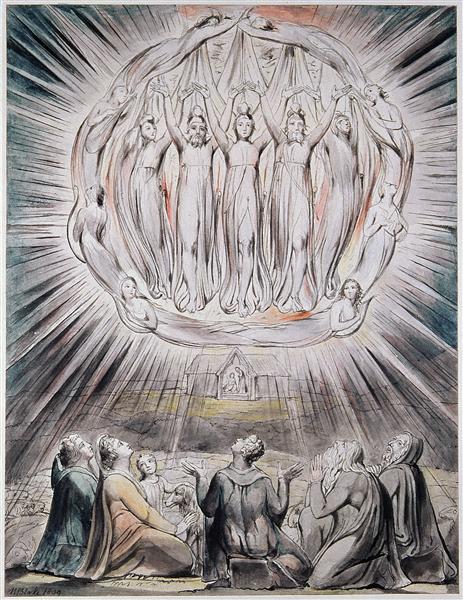This sermon won third place in Broadview’s first-ever Best Christmas Sermon Ever contest. You can watch the other winning sermons here!
It’s 1989. Midnapore Mall, south Calgary suburbs. I’m four years old, and it’s the preschool Christmas play. I’m surrounded by dozens of children decked out in costume, from the Virgin Mary to the three wise men. I’ve got a blue tunic on and a tea towel tied around my head, signifying my status as a shepherd. Very stylish. Very homemade.
You may unsubscribe from any of our newsletters at any time.
The angels, though, are the most ornate. White robes, custom cardboard wings glued with glitter. Haloes of sparkling silver and gold tinsel perched on their heads. We were just silly kids in costumes, with no idea of what was going on. But every time I think of the Nativity, I’m reminded of that mall with the brown-tiled floors. Angels sparkling under fluorescent lights.
Now, there’s probably an image of Christmas that pops into your head, too. Could be a childhood Nativity play like me. Could be Linus reciting Luke’s Gospel in A Charlie Brown Christmas. Or it could be the official Kirkland Nativity set from Costco. Regardless of what it is, my guess is that it’s a nice image. Might even be comforting, might even be lovely. Even though we live in what is becoming a less and less Christian, more and more secular culture, we all likely have images of the Christmas story that come to mind. And they’re probably pleasant.
Now, there’s nothing wrong with pleasant or comforting. Christmas is about tidings of comfort and joy, comfort and joy. But these Christmas images we have often obscure just how weird this part of the Bible is. There’s stuff we miss.
A couple of years ago, I preached a sermon about the little mention of Quirinius, the Roman governor of Syria, at the beginning of the story. The sermon was called “Keep the Quirinius in Christmas.” Get it? Like “Keep the Christ in Christmas.” Har har.
Today, I want to talk about the angels. I know it sounds lazy, but today’s sermon is titled “Keep the Heavenly Host in Christmas.”
We tend to think of angels like those in my Christmas play. But you notice that when the angel shows up to the shepherds, they are super freaked out. The old King James Version says that they were “sore afraid.” Now, why would little white robes, wings, sparkly haloes and rosy cheeks scare anybody at all? We must be missing something here.
One of my favourite depictions of any Bible story is the English poet William Blake’s 1809 illustration of the angels visiting the shepherds. Some folks suggest Blake was on drugs. Or just particularly creative and spiritual. Regardless, it’s definitely weird. You’d need some real professional costuming at your preschool if you wanted to pull this one off. No wonder the angel tells the shepherds to “be not afraid.”

Notice what the angels are wearing. If you look closely, you can see helmets. And swords. That’s because they are the heavenly host. By “host,” we don’t mean, say, Ryan Seacrest or Jimmy Fallon. It’s an older English definition: “host” meaning “army.” It’s an army of angels. And the army part isn’t just a figure of speech, like saying “Santa needs an army of elves to make his presents.” It’s an actual army. Heavenly shock troops. Celestial soldiers. Divine warriors.
Now, the last thing we probably want to do is mix war imagery and religion. It usually doesn’t end well. But that kind of war — the kind waged with weapons and violence, by and against flesh-and-blood people — that’s not the kind of war these armies are fighting. This is a war waged under the surface of things. A war waged not against human beings, but rather a war waged for human beings against the spiritual forces that hold God’s good creation in bondage. A war for life and goodness and peace and beauty against all that seeks to trample it. This is the battle the heavenly host are engaged in: a war to rescue human hearts, to repair all brokenness. A war to redeem the world.
More on Broadview:
- WATCH: Broadview’s Christmas sermon contest winners
- What we lose when we call Christ ‘king’
- A journey to where light and darkness meet
Now, why exactly do they show up to these shepherds in the middle of nowhere? Well, because they have an important announcement: that the Messiah, the anointed one, the one sent by God to set the world right, has finally arrived. A Saviour, Christ the Lord. And because he’s come, it means that an end is in sight to the war that they’re fighting. Victory is at hand, peace is coming down the pipeline. The world as it’s always meant to be — this world is on the way. “Glory to God in the highest,” they sing. “Peace on earth and goodwill towards all.”
“You find that hard to believe?” they ask. “You want proof? You want a sign? Go to Bethlehem. Check out the baby in the manger.” Jesus is like D-Day before the end of the war. The end isn’t quite here yet, but Jesus is the sign of the end. The sign that love wins in the end, goodness prevails and victory is finally in sight. He’s the sign that — in the words of Sam Gamgee in The Lord of the Rings — everything sad is becoming untrue.
I mean, it’s not exactly the message you hear on the speakers in the aisle at Loblaws, is it? But this is the true meaning of Christmas. The message of the heavenly host is this: the war is over. The war is over. It’s been won. The war is over. It’s been won.
And the best part of it is that it’s for me, and it’s for you.
The losing battle you’ve fought against depression and despair. The war is over. It’s been won. Christmas means there’s always hope.
The struggle to get your life together, to be better, to finally do good and right. The war is over. It’s been won. Christmas means there’s always forgiveness.
Or the war against literal war itself. Violence, bloodshed, hatred, terrorism, inhumanity. The war is over. It’s been won. Christmas means there’s always the possibility of peace.
It’s why our church runs a soup kitchen. It’s why we’re raising money for the Comox Valley Recovery Centre. Not because we believe we’re pushing a boulder up a hill, but because God’s grace goes downhill. We’re going with the grain of the universe. We’re joining the heavenly host in battle. A battle that has already been won. It’s how the story ends.
Christmas, dear friends, is the resounding, angelic promise that there is more going on in our world than meets the eye. That there is a goodness, a benevolence, at the heart of things. One that is greater than all our brokenness, than all evil combined. Whatever the battle being waged across Creation or inside the human heart, Christmas means that — by grace — the battle has been won. And by that same grace, all will be made new.
If you find it hard to believe, then just remember: keep the heavenly host in Christmas. Take their advice and just look to the baby in the manger.
For to you is born this day in the city of David a Saviour, who is the Messiah, the Lord. He will be for you a sign. May we follow this sign to a future without end. Amen.
***
Rev. Ryan Slifka is the minister at St. George’s United in Courtenay, B.C. This sermon won third place in Broadview’s first-ever Best Christmas Sermon Ever contest.













